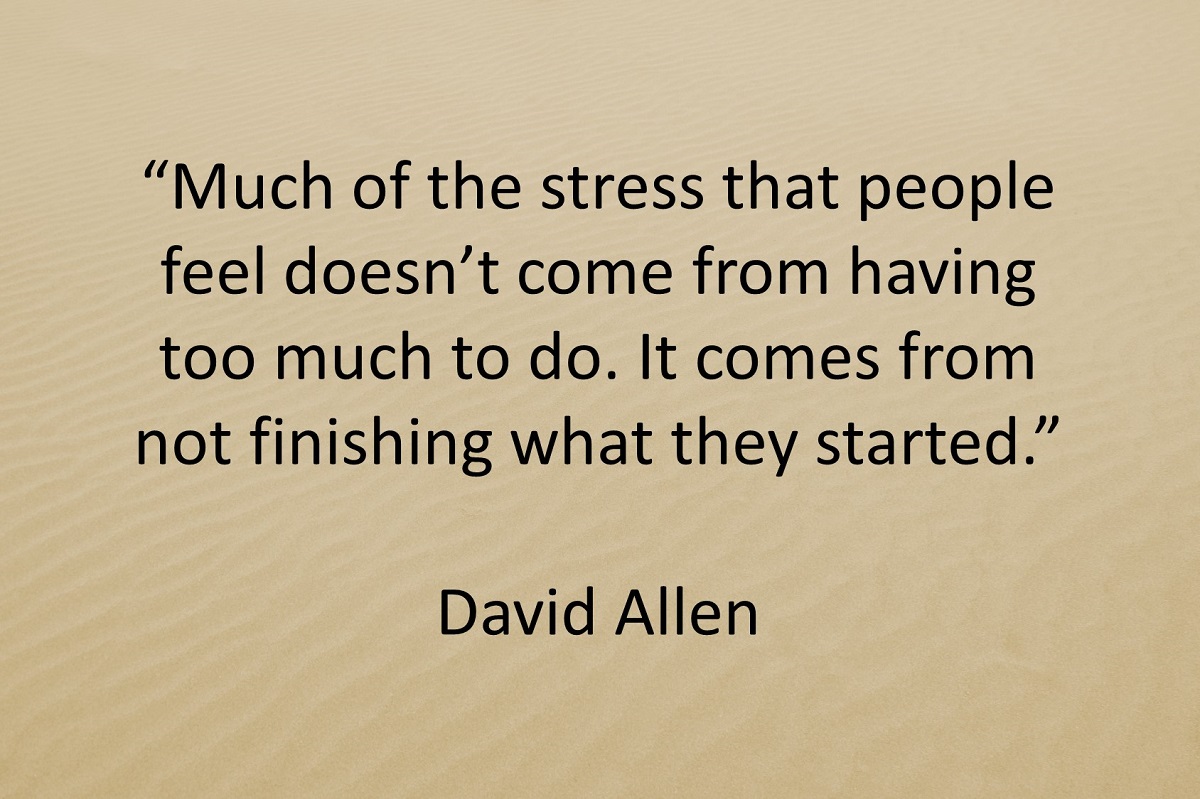
Hey there!
Taking some time out from your studies to read this post on procrastination?
Excellent (I think).
So if you haven’t yet read our first post on procrastination (Part 1 – the basics), I’d suggest a quick look.
In this post, I’m going to distil some treatment concepts from a really neat chapter by Clarry H. Lay (in this book) in which he describes how he works with chronic student procrastinators. You may be able to apply some of the ideas in your own quest to tackle procrastination.
Note: you shouldn’t use a blog post as a form of treatment – in the same way as you shouldn’t really google physical symptoms and diagnose yourself with illnesses (trust me I’ve tried). If you are really struggling with procrastination, make an appointment with one of our counsellors. That being said, you might find some good starting points in this post.
Central to Clarry’s approach is a philosophy that “Nothing beats the timely pursuit of your intentions. It is the measure of success in life.” Rather than considering “performance, money, prestige, promotion or recognition” as indicators of success, one should consider the accomplishment of their own goals/intentions as the marker of success in life.
Living this philosophy means:
– You must spend more time working on the tasks that are most important
– You must spend less time on less important tasks
– Once you have formed intentions regarding some tasks, you have an obligation and responsibility (primarily to yourself) to act on them
The ultimate payoff for change is that you will feel better about yourself.
By this definition, chronic procrastinators are “unsuccessful” as there is an significant discrepancy between their intentions (what they want to do) and their success and timeliness in doing it.
So what does Clarry suggest?
In the chapter, Clarry’s ideas are presented as tasks in a series of group counselling sessions. I have tried to distil the essence of these tasks in a way that you might be able to apply them as an individual, who is not in a group counselling setting. I apologise to Clarry if I have not distilled his ideas correctly.
1) Realise you are not alone. Lots of people struggle with procrastination and those that do often report they struggle in multiple areas of their life from their academic tasks through to everyday tasks like paying bills, doing laundry. University is often the place where their procrastination becomes a real problem though, because of the study load and the balancing of life/study demands. Procrastination can lead to significant dissatisfaction with life. So, if you are struggling, know that others do as well, and there are ways to address it.
2) Spend some time reflecting on what you want to do with your life, and your personal goals and intentions. Chronic procrastinators commonly lack clarity about who they are and what they want to achieve. They might at one level feel committed to study and university, but also find themselves unprepared to give up other things. It is like they are not sure which of the various things they do, define them as an individual. Discovering your own personal life direction is not necessarily an easy process, and might require additional work (e.g. counselling).

3) Schedule your days during study semesters like a more typical worker. The timetable of a university student can be chaotic; late nights, varied waking times, part-time work. As best as possible, aim to start each day at the same time, aim to get consistent number of hours of sleep per night (7-9) and carve out set working period in which you will do you studies. Setting a routine (particularly during the semesters) is a way of acknowledging your study is actually a “job”‘ you have to attend.
4) To not procrastinate, you will need to spend more time working on the tasks that are most important. This is fundamental. This naturally requires you to identify those tasks that are more important, which in the context of studying and university is the readings, assignments, exams and practicals/placements. However it also requires identifying those tasks that are less important and giving up some of the time you spend on them. These might include watching TV, socialising, time with family, additional readings, hobbies, and sports. Are you willing to give up some of the time you spend on these activities in order to fulfil your study intentions? Cutting down on some activities (e.g. socialising, family time) might require you to talk with friends and family and seek their cooperation and encouragement.
5) Get better at describing and documenting your intentions, goals and tasks. Procrastinators tend to describe their study intentions more like wishes (e.g. “Wouldn’t it be nice if I started the assignment tomorrow” or “I hope to start studying for my exam tomorrow”), rather than specific intentions (e.g. “I intend to, and thereby have an obligation to start studying for my test tomorrow”).
Intentions should be expressed in terms of day, time, place and for how long, written down and regularly revisited. For example – “On Monday at 9.00, in my study, I will spend 2 hours doing the readings for Assignment 1.”
For study tasks that are quite broad (e.g. study for exam), you may need to break this up into smaller tasks and assign each task to a day/time/place/how long. In this example “study for exam” might be broken down further into the readings that need to be done, the preparation of summaries of main content, testing and quizzing with a friend, and the completion of previous exams.
Commonly when setting aside time to study, students get lost in bigger thoughts like “I have to study to get good grades, and a good job etc”. Staying focused during these times is about describing the task in front of you as simply as possible – “for the next hour, I just need to read this paper and make notes on the key points”.
6) Find the right place to work. To spend more time on what is more important, you must find the right place to work. Take time to think about where this is for you. People who find it hard to filter out distractions will need dedicated quiet spaces, with minimal distractions. Those who are very good at filtering out distractions might find public spaces (e.g. libraries) quite suitable. You may need to alter a space (e.g. a spare room) to make it more suitable for study. Regardless of what you select, that space will become strongly associated with work, a sense of achievement, and remind you regularly that you have committed yourself to achieving your intentions.

7) Focus on one task at a time. This is a simple one. Multi-tasking, in the context of tasks that require focused attention, doesn’t exist. Do one thing at a time.
8) Understand how your personality shapes your procrastination. Whilst I don’t recommend you spend hours taking personality quizzes on the internet, there are a few simple personality-procrastination relationships worth noting.
“Neurotically disorganised” people tend to be scattered, forgetful and mildly anxious. In fact, it might have been these characteristics that were the origin of their procrastination. They find focused attention and concentration to be effortful and fatiguing and as such they find study more aversive and are more easily distracted. These people might require more focused training on study skills (which we will look at in future posts), and individual adaptations to study patterns (e.g. working in smaller time blocks, more regular breaks).
Individuals with low overall energy levels might benefit from a standard medical checkup, but also regular reminders that as they enact their intentions and get started with tasks, their energy levels will likely improve.
Overly optimistic individuals should be careful their procrastination is not the result of being overly complacent (“it will be fine, I’ll still get a good mark”) whilst pessimistic individuals will need to be mindful of thoughts like “its all doomed, what is the point” guiding them away from their intentions.
Individuals with a wide breadth of interests have the challenge of many potential interesting distractions. They will have to pay close attention to what interests they might (at least in the short-term) spend less time on (point 4), so they can focus on their study intentions.
Rebellious individuals (those who resist control, authority and convention) might need to reflect on to what extent their procrastination might be the result of trying to establish autonomy, albeit in a self-defeating way. Consider, for example, a student who procrastinates in a topic they don’t really want to be enrolled in, but are doing so on the wishes of friends or family members. Procrastination in this setting is less about skill, and more about defiance.
Students who lack a sense of direction and purpose (which is a bigger issue I hope to explore in the future on this blog), could accept a short-term solution which is that while they are at university, their goals are the goals of other students – learn and do well in their courses.
Finally, students who lack conscientiousness (i.e. dutifulness, self-discipline, responsibility) may need to reflect more on the idea that having formed intentions to study, it is their obligation and responsibility, to themselves and others to act on them. They have to ask themselves, does Clarry’s fundamental philosophy ” Nothing beats the timely pursuit of your intentions. It is the measure of success in life.” hold true for them?
9) Follow your schedule, even when you don’t feel like it. Having scheduled your intentions/tasks/goals, there will likely be many psychological barriers to sticking to them. You will feel tired, bored, anxious, depressed. You will dread the task thinking it will be horrible. You will lack motivation.
Procrastinators are characterised by a) overestimating the degree of unpleasantness of a task, and b) being more susceptible to negative thoughts and moods that discourage participation in those tasks. Procrastinators therefore need to keep in mind that a) study tasks will likely be more enjoyable and rewarding than expected and b) that their mood and energy levels will improve as they successfully enact their intentions.
Takeaway messages
So that was a lot. If you got this far, well done 😃
Although this is a long post, Clarry’s underlying philosophy is simple but profound:
Life satisfaction = the timely pursuit of your intentions.
There is no escaping the possibly difficult journey of clarifying your intentions (life goals) or the work required to realise them, but it is intriguing to think that tackling your procrastination might be have broader implications for your quality of life.
It is important to note that Clarry’s philosophy and techniques have come out of his clinical work, and his specific program has not been formally evaluated. So take the ideas and techniques in this post as suggestions or potential experiments that you can implement to address your procrastination.
Remember, Health, Counselling and Disability services are here at Flinders if you feel you need more help. Otherwise stay tuned for most procrastination posts in the future.
As usual – if you have something to say – try the comments below, tweet me (@Dr_Furber) or email me; gareth.furber{at}flinders.edu.au

